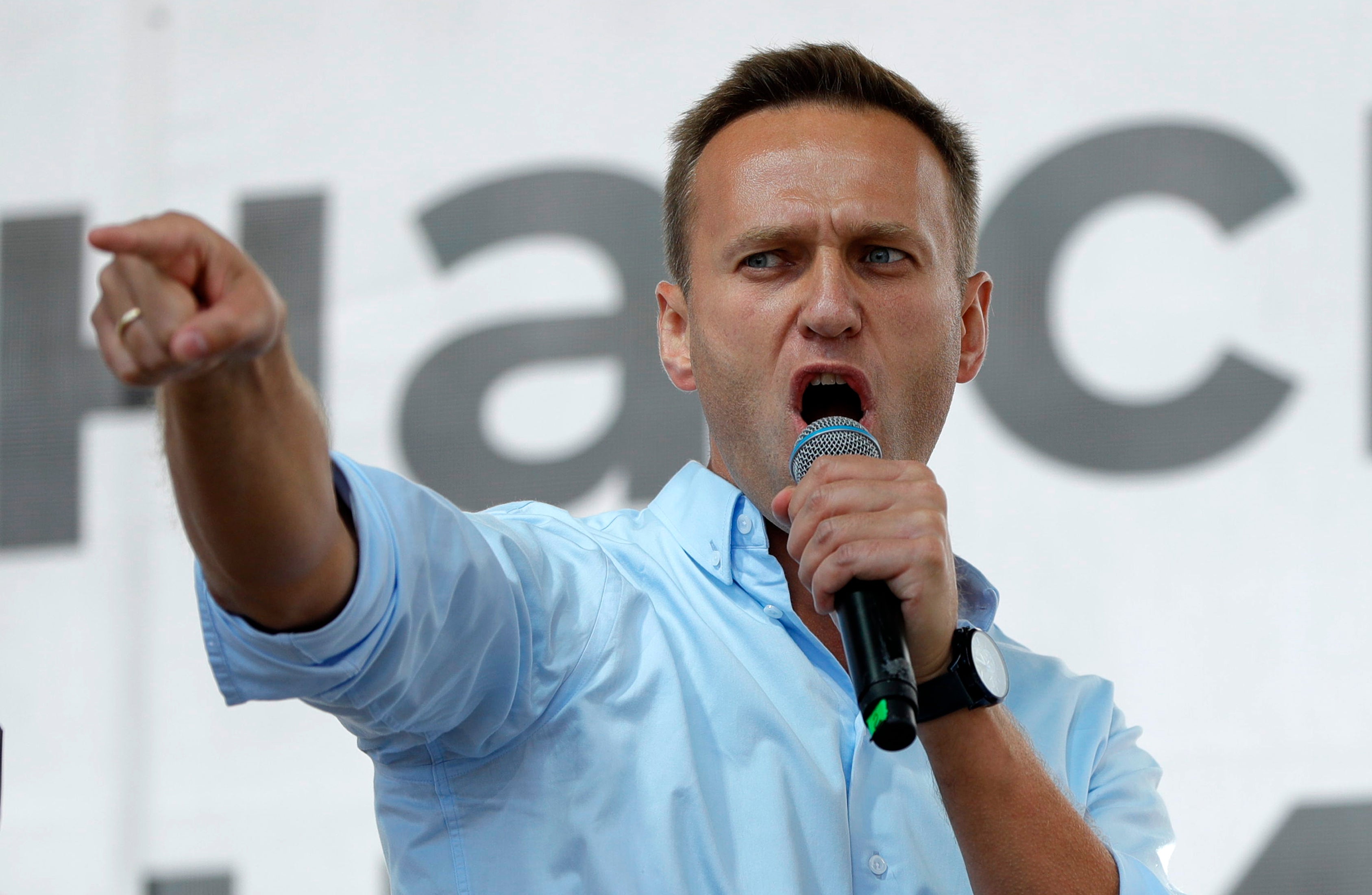Russian agents tried to kill Navalny by ‘putting poison in his underpants’
Opposition leader duped a Russian operative into revealing details about the bungled attack

Your support helps us to tell the story
From reproductive rights to climate change to Big Tech, The Independent is on the ground when the story is developing. Whether it's investigating the financials of Elon Musk's pro-Trump PAC or producing our latest documentary, 'The A Word', which shines a light on the American women fighting for reproductive rights, we know how important it is to parse out the facts from the messaging.
At such a critical moment in US history, we need reporters on the ground. Your donation allows us to keep sending journalists to speak to both sides of the story.
The Independent is trusted by Americans across the entire political spectrum. And unlike many other quality news outlets, we choose not to lock Americans out of our reporting and analysis with paywalls. We believe quality journalism should be available to everyone, paid for by those who can afford it.
Your support makes all the difference.It reads like a implausible plot twist in a comic spy-caper movie.
But in a bizarre – and very real – turn of events in an already astonishing detective story, the Kremlin’s biggest domestic critic, Alexei Navalny, has duped one of his alleged poisoners into revealing key details about the operation to kill him. The ruse also revealed that the spy agency team tried to poison him by contaminating his clothes, including his underpants.
Posing as an official from the Kremlin, Mr Navalny made an audacious early morning call to Konstantin Kudryavtsev, an employee of Russia’s security agency, hours before a journalistic investigation last Monday outed him as one of eight suspects.
Mr Navalny asks the agent for details of the operation in order to prepare a two-page report for “you know who” in the Russian leadership.
Mr Kudryavtsev, who reveals he is self-isolating from the coronavirus, appears to understand he is being asked for sensitive information, but proceeds to give an astonishing account of the “failed” operation.
The operation had been planned well, he said, and would have ended as it should have done if only Mr Navalny’s plane from Tomsk to Moscow on 20 August “had flown a bit longer”. Confirming long-held suspicions, Mr Kudryavtsev says that only the quick thinking of the pilot, who diverted to nearby Omsk, and first responders – who administered an antidote on the runway – averted a lethal outcome.
The joint Bellingcat-Insider-CNN investigation published last week suggested that Mr Kudryavtsev’s role in the operation had been to clean up. The agent arrived in Omsk on 25 August, five days after the poisoning, after which he returned immediately to Moscow.
In the prank call, Mr Kudryavtsev confirms he was not part of the operation to administer the poison, identified in September as belonging to the novichok family of nerve agents. However, when asked if the poison was applied to all of Mr Navalny’s clothes, he answers in the affirmative.
He had been asked to “work with the box” of Mr Navalny’s clothes, he adds, and in particular, the most “risky item” – his underpants. The instructions were clear: remove the toxin from the inner seams of the crotch area. This is the first admission that Mr Navalny’s clothes were the primary target of the operation.
“The grey boxers?” interjects Mr Navalny in what amounts to a trick question.
“No, they were blue as far as I remember,” replies Mr Kudryavtsev
Mr Kudryavtsev, a military medic, reassures his purported Kremlin boss that there was unlikely to be any trace of the “substance” on the body. “It gets absorbed very fast,” he said.
In the course of the 45-minute conversation, the agent names several of his alleged accomplices. He refers to “Mikhail,” who gave him the clothes in Omsk, and who investigators later identified as Mikhail Yevdokimov, the local head of the FSB anti-terrorism branch. He also mentions novichok-specialising military scientist Stanislav Makshakov, his boss, who knew “much more” about the operation.
Mr Kudryavtsev also confirms the participation of Ivan Osipov and Alexei Alexandrov, both identified in last week’s Bellngcat-Insider-CNN report. And he names a ninth man, Vasily Kalashnikov, missing from that report.
The remarkable admissions pile embarrassment on to Russia’s security services, already reeling from last week’s ridiculing of key aspects of their spycraft and professionalism.
Mr Kudryavtsev, almost as an afterthought, asks his barely disguised interlocutor if it was a “problem” that they were speaking so candidly on open channels.
“I agreed with the bosses I’d call on open channels,” replies Mr Navalny.
“You agreed, right?”
“Yes, yes”
“OK, till later then.”




Join our commenting forum
Join thought-provoking conversations, follow other Independent readers and see their replies
Comments